Books of the Year 2020
Glyn Davis
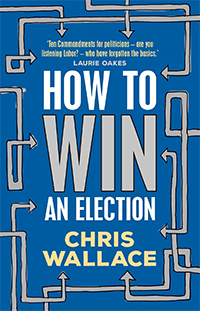 How to Win an Election by Chris Wallace
How to Win an Election by Chris Wallace
With theatres closed by plague, many intriguing productions were lost to us in 2020. Tom Stoppard’s late rumination Leopoldstadt (Grove Press, BUY), about generations of a Jewish family in Austria, lasted only a few weeks on the stage before Covid-19 intervened. Fortunately, the text is now published and repays close reading. Daniel Mendelsohn, too, continues to ponder how we make sense of history. His Three Rings: A tale of exile, narrative, and fate (University of Virginia Press, BUY) is a masterful demonstration of narration through digression, echoing the exile and grieving expressed by Stoppard. Thanks to Chris Wallace for How To Win An Election (NewSouth, BUY), a reminder that passionate writing matched with tough-minded analysis is still possible when arguing about Australian politics. Finally, a shout-out to editors Glenn Morrison, Raelke Grimmer, and Adelle Sefton-Rowston for the first issue of Borderlands, a journal of ideas and identity from the Northern Territory. These welcome voices from Alice Springs and Darwin bring insight and energy to an essential conversation about identity.
Sarah Holland-Batt
After years of anticipation, I was thrilled to finally read Jaya Savige’s dazzling third volume, Change Machine (UQP, BUY): an intoxicatingly inventive and erudite collection rife with anagrams, puns, and mondegreens that ricochets from Westminster to Los Angeles to Marrakesh, remixing multicultural linguistic detritus into forms of the poet’s own invention. Yet for all the book’s global sweep, it’s the quiet poems about fatherhood that stay with me, especially Savige’s immensely moving elegy for a premature son, ‘Tristan’s Ascension’, with its devastating simplicity: ‘Oh, son. You stepped off one stop too soon. / Your mother has flown // all the way to Titan / to look for you.’ I also loved Prithvi Varatharajan’s Entries (Cordite, BUY), an introspective and deeply intelligent collection of mostly prose poems whose overriding note is one of ambivalence: a welcome antidote to the sea of certitude we seem to swim in these days.
Frank Bongiorno
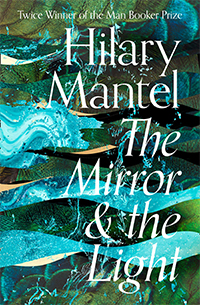 The Mirror and the Light by Hilary Mantel
The Mirror and the Light by Hilary Mantel
My ‘iso’ read was Hilary Mantel’s Wolf Hall trilogy, ending with The Mirror and the Light (Fourth Estate, BUY). Mantel’s Thomas Cromwell is a study in embodied power that will surely influence my understanding of the practice of politics ever after. For similar reasons, I admired Sean Scalmer’s Democratic Adventurer: Graham Berry and the making of Australian politics (Monash University Publishing, BUY). In the absence of the plentiful private papers enjoyed by biographers of Henry Parkes and Alfred Deakin, Scalmer presents a memorable portrait of a man who arguably did more than any other to define the character of antipodean democracy. Amanda Laugesen’s Rooted: An Australian history of bad language (NewSouth, BUY) picks up where classic accounts of our identity, such as Russel Ward’s The Australian Legend, left off. As the global experience of Covid-19 prompts renewed soul-searching about what makes us different from others, Rooted has arrived just in time.
Beejay Silcox
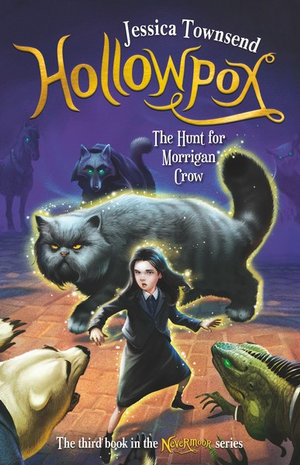 Hollowpox: The hunt for Morrigan Crow by Jessica Townsend
Hollowpox: The hunt for Morrigan Crow by Jessica Townsend
When you’re lucky enough to meet a twelve-year-old girl who loves books as ferociously as you do, and she raves about her new ‘best-most-favourite-ever novel’, go buy a copy! That’s how I learned about Jessica Townsend’s glorious Nevermoor series, the third of which, Hollowpox: The hunt for Morrigan Crow (Hachette, BUY), has just been released (nine books are planned). Townsend’s books balance sophisticated menace, gleeful morbidity, and guileless wonder. Wonder has been the watchword of my reading year: I found it lurking in the endless halls of Susanna Clarke’s Piranesi (Bloomsbury, BUY) – imagine a joyful Robinson Crusoe trapped in an Escher sketch – and in Catherine Lacey’s Pew (Granta, BUY), a novel that reads like Flannery O’Connor penned an episode of The Twilight Zone. In non-fiction, fellow Western Australian Rebecca Giggs’s Fathoms: The world in the whale (Scribe, BUY) left me feeling like I’d surfaced from some uncharted deep – breathless, awestruck, and brimming with questions.
Judith Brett
For the past two springs, I have driven from Victoria to the Flinders Ranges. Not this year, of course. Instead, locked down in the city, I read Garry Disher’s three novels set in South Australia’s dry farming country, where Constable Paul Hirschman drives up and down the Barrier Highway to solve crimes small and large: Bitter Wash Road, Peace, and the most recent, Consolation (Text, BUY). Disher’s plots are masterful, and Hirschman is warmer and less troubled than the average fictional copper, but for me the richest pleasure is Disher’s superb evocation of place. Amanda Lohrey’s The Labyrinth (Text, BUY) is a novel about suffering and redemption, set in a small coastal community to which the main character moves to be near her imprisoned son and to find a way through the nightmare of his madness. Lohrey’s social observation is acute and the writing is superb, spare, and filled with light and wisdom.
Paul Giles
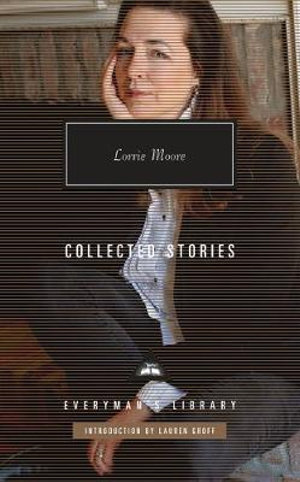 Collected Stories by Lorrie Moore
Collected Stories by Lorrie Moore
The handsome and weighty Everyman’s Library edition of Lorrie Moore’s Collected Stories (BUY), with an introduction by Lauren Groff, confirms Moore’s reputation as one of the most innovative fiction writers of her era. From nearer to home, Kate Fullagar’s The Warrior, the Voyager, and the Artist: Three lives in an age of empire (Yale University Press, BUY), winner of the General History Prize at the NSW Premier’s Awards, is an engaging example of what the author calls ‘New Biography’. It uses the interwoven life stories of Sir Joshua Reynolds, Cherokee warrior Ostenaco, and Pacific Islander Mai to challenge drier historical clichés about the British Empire in the eighteenth century. In a more hardcore academic vein, Jack Halberstam’s Wild Things: The disorder of desire (Duke University Press, BUY) traces theoretically the evolution of the ‘wild’ as an epistemological formation in modern times, ranging across cultural icons from Thoreau and Stravinsky to Monty Python and the Muppets.
Declan Fry
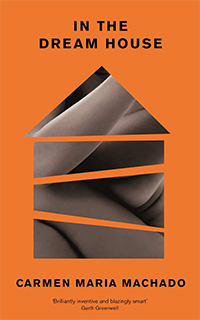 In the Dream House by Carmen Maria Machado
In the Dream House by Carmen Maria Machado
I loved Carmen Maria Machado’s In the Dream House (Serpent’s Tail, BUY). The vertiginous flair of the writing, the multi-angular excavations of love and hurt in same-sex relationships (forget ‘Never Say I Didn’t Bring You Flowers’: Machado’s lover barely proffers a rose). In one of the book’s memorable set-pieces, Machado invites readers to choose their own adventure; anyone reading this may realise they already have. Ellena Savage’s Blueberries (Text, BUY) stole my heart. Not surprising, either, given all the larceny it contains: the theft of land that birthed settler-colonial Australia; the theft of time as one’s twenties make way for their thirties; the cruel coercion and theft of self that marks sexual violence. I liked Elizabeth Tan’s Smart Ovens for Lonely People (Brio, BUY) even more than Robbie liked Cecilia in Atonement. Congratulations are due to Tan: it is we, the reader, who may have already won (and not once, now, but twice). Finally, I can happily testify that Cathy Park Hong’s Minor Feelings (Profile, BUY) caused nothing of the sort.
Kerryn Goldsworthy
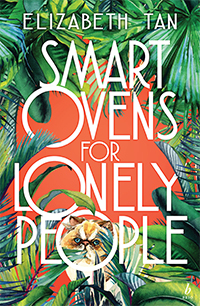 Smart Ovens for Lonely People by Elizabeth Tan
Smart Ovens for Lonely People by Elizabeth Tan
My picks feature a couple of youngish, newish Australian writers: Elizabeth Tan and Daniel Davis Wood. Tan’s short story collection Smart Ovens for Lonely People (BUY) won the 2020 Readings Prize for New Australian Fiction. The witty stories are set in a futuristic yet easily recognisable world where the human relationship with technology becomes ever closer and more anxiety-inducing while creating some laugh-out-loud scenarios and lines. The book is utterly original, as is Davis Wood’s At the Edge of the Solid World (Brio, BUY), a detailed study in grief and empathy. This beautifully written novel places individual and personal human grief in the context of various massive-scale real-life tragedies, tacitly making the argument that the former is not diminished by the latter, and explores the implications of a claim made by the narrator in its final pages: ‘the body is holy and there’s no accounting for all that is lost when the body is gone’.
Kim Williams
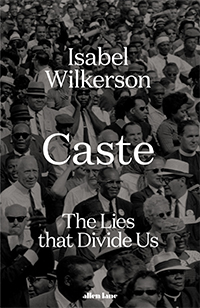 Caste: The lies that divide us by Isabel Wilkerson
Caste: The lies that divide us by Isabel Wilkerson
Some books this year took my breath away – first was Caste: The lies that divide us (Allen Lane, BUY) by Pulitzer Prize-winner Isabel Wilkerson. This is one of the best books I have read this century. It addresses embedded hierarchy and its corrosive impact on thought, behaviour, and society in a wholly original way, drawing always on real-world examples from the United States, while drawing profound references elsewhere, quite brilliantly. I admired Shoshana Zuboff’s The Age of Surveillance Capitalism (Public Affairs, BUY), which provides a searing analysis of society and its disruption from mighty, often cynical, seemingly unstoppable big tech companies. Finally, I am an ardent advocate for Jenny Hocking’s continuing authoritative study of Gough Whitlam, generally as his biographer and specifically over his dismissal in several studies culminating in The Palace Letters (Scribe, BUY). This is an authoritative account of the settings, subterfuge, and genuine intrigue attached to the behaviour of the governor-general and the queen’s private secretary, arising from Hocking’s dogged pursuit of the National Archives of Australia to release John Kerr’s ‘private correspondence’. A must read for anyone interested in modern Australian history, one that provides definitional purpose for an Australian republic.
Morag Fraser
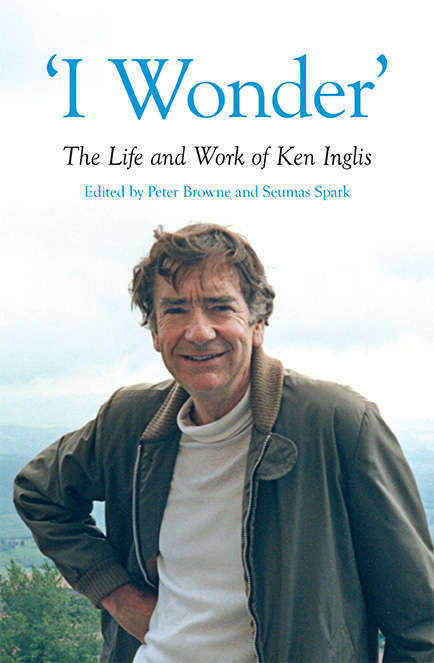 I Wonder: The Life and Work of Ken Inglis edited by Peter Browne and Seumas Sparke
I Wonder: The Life and Work of Ken Inglis edited by Peter Browne and Seumas Sparke
When the forests were sprouting their green fuzz in February, I read essays on the scholarly, wit-leavened life and work of historian Ken Inglis. Aptly titled, and edited by Peter Browne and Seumas Spark, I Wonder (Monash University Publishing, BUY) was testimony to the profound contribution Australian historians make to our collective life and intellectual integrity. What price a history degree these days? As Victoria ground its way out of lockdown, I read What Happens Next? Reconstructing Australia after Covid-19 (Melbourne University Press, BUY), edited by yet another Australian historian, Janet McCalman, and public policy academic–activist Emma Dawson. Frankly Labor in its bent, but nonetheless abuzz with scrutable and arguable ideas for a more equitable future, it was refreshing, challenging – and hopeful. In between, I read Marilynne Robinson’s new novel, Jack (Virago, BUY), and reread everything else Robinson has written to remind myself of what remains wonderful about America.
Tony Birch
Ellen van Neerven’s Throat (UQP, BUY) highlighted, yet again, that van Neerven is an important and gifted poet. The poem ‘Country’ ends with the sparse but resonant image, ‘my country and I / numb until fed’. Two of my favourite books this year were works of non-fiction. James Boyce’s Imperial Mud: The fight for the Fens (Icon Books, BUY) is a wonderful example of history writing embedded in the narratives of place, in this instance the Fenlands of England and its people, both dramatically altered in the name of dubious progress. Similarly, Andri Snaer Magnason’s On Time and Water (Serpent’s Tail, BUY) is a story of Iceland and the growing impact of climate change told through family stories, mythology, and deep time. I loved Hiromi Kawakami’s People From My Neighbourhood (Granta, BUY), a slim volume of perfectly weighted short fiction in the Japanese tradition of ‘palm of the hand stories’.
Don Anderson
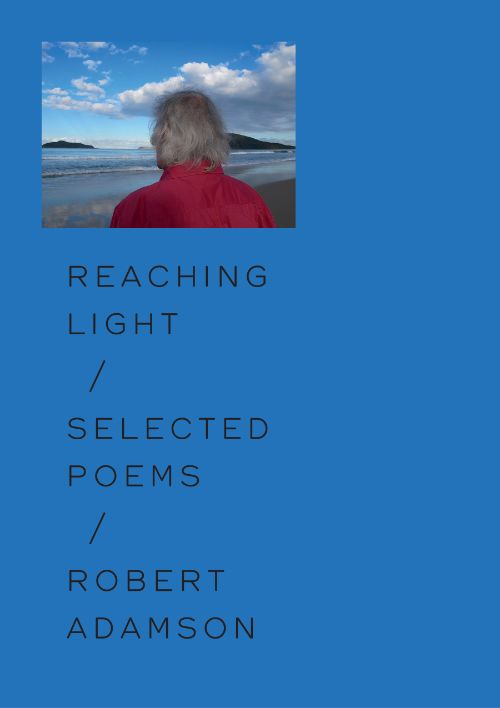 Reaching Light: Selected poems by Robert Adamson
Reaching Light: Selected poems by Robert Adamson
In this Year of the Plague, we could do worse than celebrate our poets, particularly the lyric and the witty, and have them sing us through Prince Prospero’s Palace to alleviate, in particular, Melbourne’s own Masque of the Red Death. Robert Adamson is the Bard of the Hawkesbury River, poet of tides, oysters, and Spinoza the satin bowerbird, all celebrated in his Reaching Light: Selected poems (Flood Editions, BUY). Laurie Duggan’s Homer Street (Giramondo, BUY) shows him to be, to appropriate his own words, ‘a minimalist with a lot of content’. Always witty and intellectually acrobatic, he validates the Horatian assertion ut pictura poesis. If Ezra Pound was correct in asserting that ‘an Epic is a poem containing History’ (and he was), then π.O.’s Heide (Giramondo, BUY) is truly epic, while but one part of a greater three, preceded by 24 Hours and Fitzroy: The biography. Art as history; history as art.
Alice Nelson
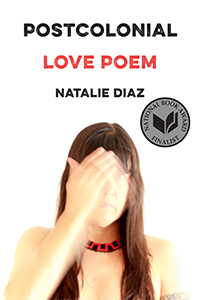 Postcolonial Love Poem by Natalie Diaz
Postcolonial Love Poem by Natalie Diaz
‘Why not now go toward the things I love?’ asks Mojave-Latinx poet Natalie Diaz in the final poem of her electric, intimate collection Postcolonial Love Poem (Graywolf Press, BUY), which is both a celebration of the body ecstatic and a condemnation of the violence wrought on Native American bodies. Both the rapturous renewals and the darker edges of love are limned beautifully in Mags Webster’s new poetry collection Nothing to Declare (Puncher & Wattman, BUY) and also in Garth Greenwell’s novel-in-stories Cleanness (Picador, BUY), which is preoccupied with our porousness to each other and the sometimes vertiginous excavations of the self that love and desire demand of us. Mark Doty’s What Is the Grass: Walt Whitman in my life (Jonathan Cape, BUY) is an enchanting conversation across time and space; at once a devoted paean to a spiritual ancestor, an eloquent close analysis of Whitman’s poetry, and a moving account of a life lived in its reflected light.
James Ley
The novel that stood out for me this year was Andrew O’Hagan’s Mayflies (Faber, BUY). In the past, I have been more admiring of O’Hagan’s journalism than his fiction, but his bittersweet story about the formative experiences of youth and the pain of losing a lifelong friend to cancer is notable for its quiet sensitivity and pathos. The two non-fiction books I most admired were Lydia Davis’s Essays (Hamish Hamilton, BUY) a career-spanning collection of insightful musings on literature and the craft of writing, and Patrick Mullins’s The Trials of Portnoy (Scribe, BUY), an entertaining history of a successful campaign to reform Australia’s antiquated censorship laws. Let it also not pass without notice that this year the canonical Library of America imprint republished Richard Hofstadter’s classic works of the early 1960s, Anti-Intellectualism in American Life and The Paranoid Style in American Politics, which have dated in certain respects, but nowhere near as much as one might hope.
Yves Rees
This year, as Black Lives Matter protests fuelled an overdue reckoning with race, I decentred whiteness in my reading diet, prioritising Indigenous writers and writers of colour. It was an embarrassment of riches. As a historian, I thought I knew the history of frontier violence in Tara June Winch’s The Yield (Hamish Hamilton, BUY). I knew it, yes, but Winch’s masterpiece made me feel it like never before – a reminder that stories trump facts when truth-telling about Australia’s past. Mirandi Riwoe’s Stone Sky Gold Mountain (UQP, BUY) tells a refreshing counter-narrative of the goldfields, one focused on the Chinese miners typically painted as mere victims of white protagonists. Smart Ovens for Lonely People (BUY), Elizabeth Tan’s short story collection, is a romp of dazzling imagination that injected whimsy into my lockdown. Poetry has never been my tipple, but Ellen van Neerven’s Throat (BUY) converted me. Each line lands like a punch, the whole book an assault on settler complacency.
John Hawke
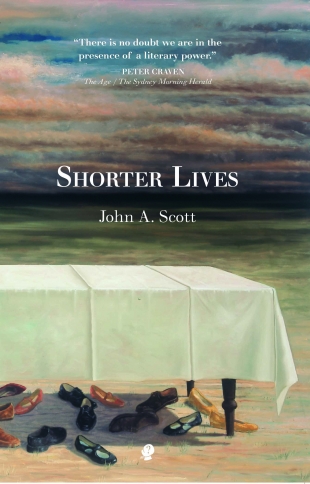 Shorter Lives by John A. Scott
Shorter Lives by John A. Scott
Peter Weiss’s 1975 text The Aesthetics of Resistance (Duke University Press), which chronicles the anti-fascist underground in 1930s Nazi Germany, is perhaps the most significant political novel of the late twentieth century, and seems strikingly relevant to contemporary concerns. The Duke University Press edition of Volume II (the first appeared in 2005) is astutely translated by Australian poet Joel Scott; it is to be hoped that a translation of the final volume is forthcoming shortly. John A. Scott’s Shorter Lives (Puncher & Wattmann, BUY) signals a return to poetry by this major author. Innovative in form and masterly in its construction, Scott’s book interrogates the major figures of literary Modernism to raise unsettling questions about the nature of modernity itself. Readers who enjoyed Meredith Wattison’s exquisite prose poem ‘Votive’ in the September edition of ABR will be interested in her new collection, The Munchian O (Puncher & Wattmann, BUY).
Felicity Plunkett
Ali Smith’s Summer (Hamish Hamilton, BUY) completes her seasonal quartet, written swiftly in response to unfolding events, including the pandemic. Summer collects strands from the first three novels around ideas of fracture and repair. Allusive, expansive, and exhilarating, its motifs of migratory birds and fragments of remembered wisdom evoke acts of kindness and consolation emphasising the idea that there is a ‘chance to make the world bigger for someone else. Or smaller.’ Rowan Ricardo Phillips’s poetry collection Living Weapon (Farrar, Straus and Giroux, BUY) is a paean to imagination’s ‘gloriously winged / Angel’. It swoops through Homer, Orpheus, Elizabeth Bishop, the United States, and Madrid to limn ways a person – especially a poet – might vote against ‘the awful silence of rage’. Rage, angels, and alchemy are part of the meticulous design of Amanda Lohrey’s The Labyrinth (BUY), which examines the trace and wrack of violence and the counterbalancing creativity that might transmute it.
Gregory Day
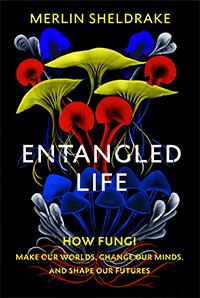 Entangled Life: How Fungi Make Our Worlds, Change Our Minds and Shape Our Futures by Merlin Sheldrake
Entangled Life: How Fungi Make Our Worlds, Change Our Minds and Shape Our Futures by Merlin Sheldrake
My standout books this year were all, in their own way, about the slow processes of the earth and its creatures. Merlin Sheldrake’s Entangled Life (Bodley Head, BUY) is the most readable and good-humoured book ever written on the mind-opening, ever-connecting life forms of fungi. An important publishing event was the long-awaited appearance of A Shelter for Bells (Epidote Press), an exquisitely produced binding of the vivid walking notebooks of German aphorist, composer, and mystagogue Hans Jürgen von der Wense. And James Boyce’s longitudinal study of the Fens, Imperial Mud (BUY), is a surprising and wonderfully slushy next layer in the ecological oeuvre of my favourite Australian historian.
Ali Alizadeh
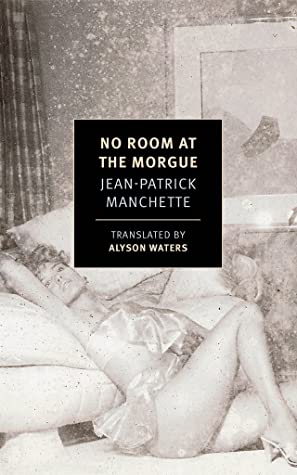 No Room at the Morgue by Jean-Patrick Manchette, translated by Alyson Waters
No Room at the Morgue by Jean-Patrick Manchette, translated by Alyson Waters
Thrilled that the great French novelist Jean-Patrick Manchette’s work is becoming more readily available in English, I’ll choose Alyson Water’s translation of No Room at the Morgue (NYRB, BUY) as my favourite work of international fiction for the year. It may be one of Manchette’s more formulaic hard-boiled novels, but it’s still utterly riveting, darkly humorous, and joyfully violent. On a more topical note, Swedish scholar Andreas Malm’s Corona, Climate, Chronic Emergency: War communism in the twenty-first century (Verso, BUY) leaves no doubt that bourgeois individualism, no matter how ‘ethical’, will do nothing to save us from the calamities of our world. We must unite and act collectively, decisively. My favourite work by an Australian author this year was the novelist Elizabeth Bryer’s eloquent translation of José Luis de Juan’s Napoleon’s Beekeeper (Giramondo, BUY), a terrific historical novella about the emperor’s brief exile on the Italian island of Elba.
Jacqueline Kent
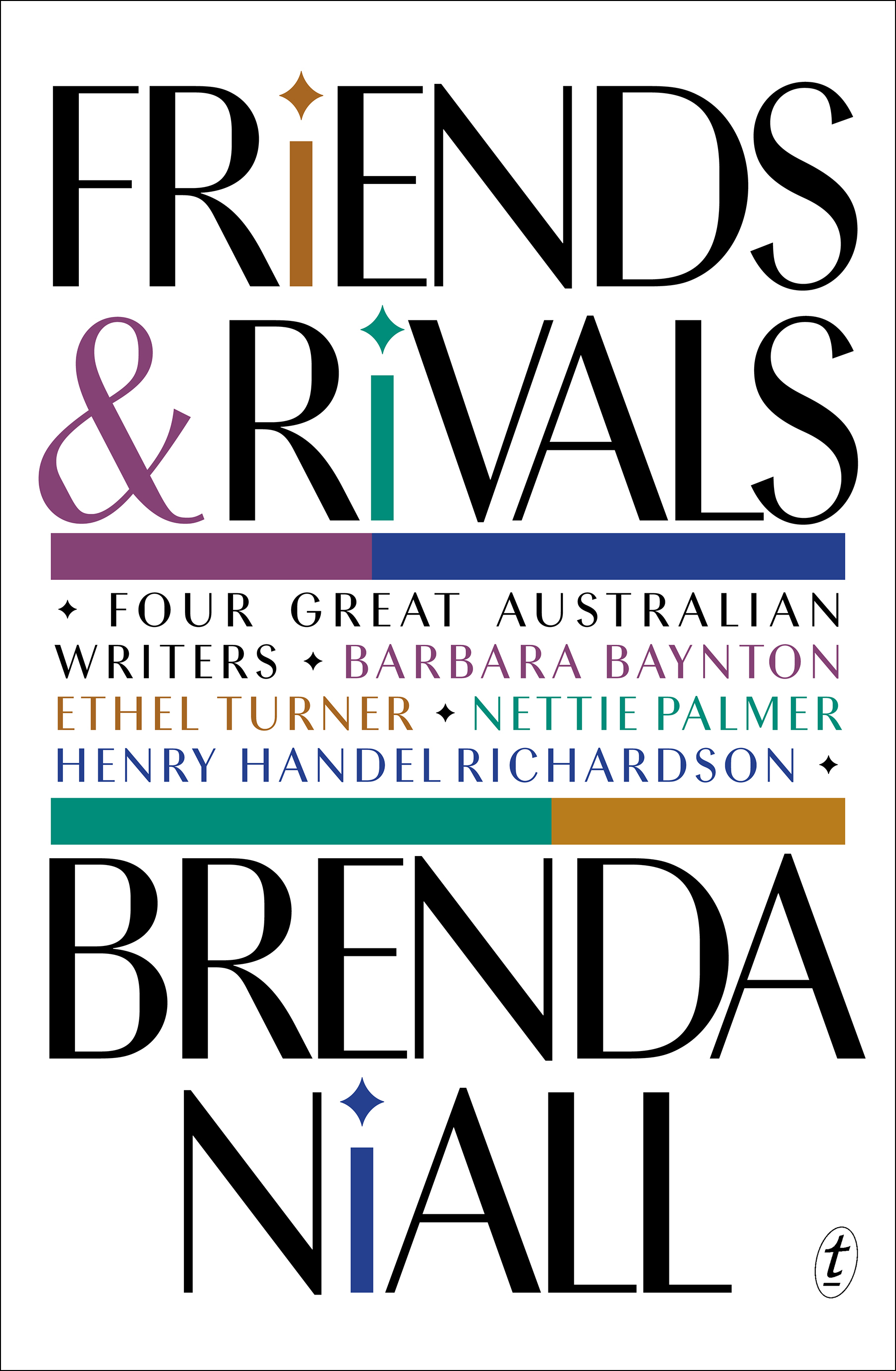 Friends and Rivals by Brenda Niall
Friends and Rivals by Brenda Niall
Friends and Rivals (Text, BUY), Brenda Niall’s study of four Australian women writers working against the grain of their literary times, accomplishes a great deal. Niall provides sharply individual portraits of Barbara Baynton, Ethel Turner, Nettie Palmer, and Henry Handel Richardson, and gives an overview of the writing life for women in the early twentieth century. Her sometimes mordant commentary is particularly enjoyable. In the reviews and journalistic commentary that make up Mantel Pieces (Fourth Estate, BUY), Hilary Mantel demonstrates elegant writing, coruscating wit, and breadth of knowledge about a huge variety of subjects. And Philippe Sands’s The Ratline (Weidenfeld & Nicolson, BUY), the biography of Otto Freiherr von Wächter, a devoted family man who was also a vicious Nazi war criminal, is mesmerising. This is largely because of the author’s adroit negotiation of contradictory strands. Wächter’s son, convinced his father was a good man, helped Sands in his research.
Billy Griffiths
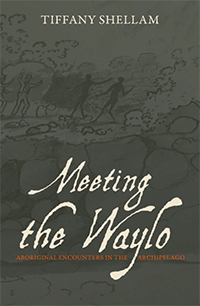 Meeting the Waylo: Aboriginal Encounters in the Archipelago by Tiffany Shellam
Meeting the Waylo: Aboriginal Encounters in the Archipelago by Tiffany Shellam
Two Australian histories deeply impressed and inspired me this year: Tiffany Shellam’s richly evocative Meeting the Waylo: Aboriginal encounters in the archipelago (UWA Publishing, BUY), which searches the silences of colonial archives, and Grace Karskens’s masterfully crafted People of the River: Lost worlds of early Australia (Allen & Unwin, BUY), which explores the confluence of lives, cultures, and histories along the ancient waterway of Dyarubbin. James Boyce’s Imperial Mud (BUY) offers a lively and refreshingly antipodean history of the Fens in eastern England, while Hank Lentfer’s biography Raven’s Witness: The Alaska life of Richard K. Nelson (Mountaineers Books, BUY) brims with the curiosity, wisdom, and exuberance of his subject, ‘Nels’. Robbie Arnott conjures the magic of a Studio Ghibli production in his beautiful novel The Rain Heron (Text, BUY). And it was a thrill to return to Elena Ferrante’s Naples in The Lying Lives of Adults (Europa, BUY).
John Kinsella
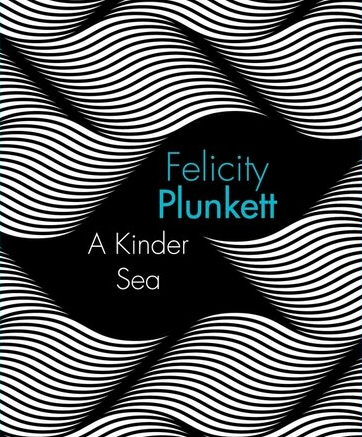 A Kinder Sea by Felicity Plunkett
A Kinder Sea by Felicity Plunkett
Two standout poetry volumes whose concerns revolve around the workings of language have been years in the making, yet no two works could be more different. Jaya Savige’s Change Machine (BUY) is a work of razor-sharp verbal plays and passion for detail shimmering on international wavelengths. It disputes colonial usurpings of language by breaking them down and playing them back in confronting, ironic, and liberated ways. It’s a book of social critique and family, and an incisive investigation of the estrangement and bewilderment many of us feel. Felicity Plunkett’s A Kinder Sea (UQP, BUY), with its searching for ways to ‘love’ and be loved, for deliverance from harm and damage, towards a ‘kindness’, is a book that traverses love, textuality, family, bodies, ‘art’/‘music’, stories, loss, lament, and the sea. In ‘conversation’ with Emily Dickinson and other writers, it’s a sinewy book of survival with a deceptive tautness beneath its flows. Another work written and revised over many years is Gabrielle Everall’s unique, ironic, confronting, frequently traumatic, and dissecting verse novel of sexuality and desire, passion but also abusive invasiveness, Dona Juanita and the Love of Boys (Buon-Cattivi Press, BUY). And for a book that confronts colonial injustice and decisively shows why Australians should understand and address the history of dispossession, the fact of Aboriginal sovereignty, and continuing connection to country, Living on Stolen Land by Ambelin Kwaymullina (Magabala Books, BUY) is an essential and clear statement.
Patrick McCaughey
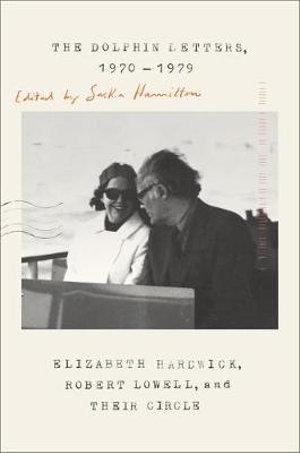 The Dolphin Letters, 1970–1979, edited by Saskia Hamilton
The Dolphin Letters, 1970–1979, edited by Saskia Hamilton
Robert Lowell’s penultimate slim volume was The Dolphin (1973). Its sensational subject – his abandonment of his wife, Elizabeth Hardwick, and his impassioned affair with and marriage to the perilous Caroline Blackwood – guaranteed its notoriety. Lowell quoted Hardwick without consulting her. Their Dolphin Letters 1970–79 (Faber, BUY) and letters from friends such as Elizabeth Bishop and Mary McCarthy, all edited by Saskia Hamilton, are grimly illuminating. Hardwick comes out nobly, Lowell badly, and Blackwood ignobly. Mary Hoban’s An Unconventional Life: The life of Julia Sorell Arnold (Scribe, BUY) is a brilliant portrait of a calamitous Victorian marriage. Brought up in colonial Hobart, Julia had the misfortune to fall in love with and marry Tom Arnold, son of Dr Arnold, brother of Matthew and Inspector of Schools in Tasmania. Back in Britain, under J.H. Newman’s spell, he converted to Catholicism and created a lasting breach with Julia. She raised eight children on little money. A favourite of Jowett’s at Oxford and the grandmother of Aldous and Julian Huxley, she was worn down by Tom.
Susan Wyndham
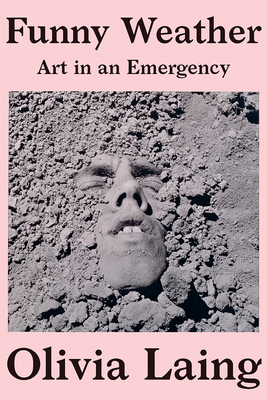 Funny Weather: Art in an emergency by Olivia Laing
Funny Weather: Art in an emergency by Olivia Laing
Visual art in many forms has been my salve this year, including these books about the dance between tension and beauty. British art critic Olivia Laing writes about ‘reparative art’ (and literature) in her essay collection Funny Weather: Art in an emergency (Picador, BUY). In elegant, vivid prose, she writes about artists who have responded creatively to personal and political crisis, from painters Georgia O’Keeffe and Jean-Michel Basquiat to filmmaker–gardener Derek Jarman. Australian novelist Amanda Lohrey shows how art can both destroy and heal in The Labyrinth (BUY), which follows in philosophical depth a woman’s retreat from Sydney to the rural coast, where her artist son is in prison and she must rebuild peace of mind. Sofie Laguna goes inside the imagination of an artistically talented boy in Infinite Splendours (Allen & Unwin, BUY), a brilliant, heartbreaking portrait of a damaged but resilient soul.
James Walter
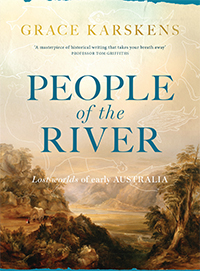 People of the River: Lost worlds of early Australia by Grace Karskens
People of the River: Lost worlds of early Australia by Grace Karskens
How has our core culture come to be what it is? Grace Karskens’s magnificent People of the River (BUY) immerses us in the realities of early settler/Indigenous cultural collision, impelling the realisation that these tangled histories must be jointly understood to render justice and reconciliation possible. Sean Scalmer’s engaging Democratic Adventurer (BUY), tracking Graham Berry’s rise in nineteenth-century Victorian politics through rhetoric and charisma to become the leading advocate of protection, illuminates the origins of our persisting expectation that the state should act to curtail adversity. The strictures of Australian liberalism are cruelly exposed in Terry Irving’s acute The Fatal Lure of Politics: The life and thought of Vere Gordon Childe (Monash University Publishing, BUY), on the Australian archaeologist. Childe’s fascination with the deep history of cultures and the improvement of current conditions led him to Marx, a hatred of colonialism and imperialism, exile from Australia to win renown abroad, and an unremitting pursuit by British and Australian security services.
A. Frances Johnson
Jenny Offill’s novel Weather (Granta, BUY) melds Holocene end-time themes with refreshing deadpan wit. Her gloom-struck heroine lands an uncredentialled academic job answering mail from doomsday preppers. She cares for the letter writers as she does for her god-haunted mother and recovering addict brother. Perfect paragraphs fashion Offill’s gut-wrenching ‘weather report’. Judith Brett’s Quarterly Essay, ‘The Coal Curse’ (Black Inc., BUY), is a devastating, clarifying history of the ‘resource curse’ and long-term Australian failures to foster manufacturing. Brett, not Barnaby Joyce, deftly catches the coal footy that a future PM saw fit to bring into parliament in 2017 – an essay so good I wanted a plane to do a leaflet drop. Fire Front: First Nations poetry and power today (UQP, BUY) dynamically situates seminal poets alongside ascendant talents (e.g. Oodgeroo Noonuccal, Lionel Fogarty, Raelee Lancaster, Baker Boy). Bruce Pascoe, Chelsea Bond, and other Indigenous public intellectuals provide searing commentaries on myriad poetic ways of ‘doing power’.
Philip Mead
What a year of catastrophe for the arts, especially the performing arts, and one of dispiriting disregard for education and its vital role in our lives. The literary arts are used to their marginal habitats, those unresolved times and spaces of reading and writing – the fall-backs of our deepest selves. In a year, for me, of many poetry volumes, the recourse of poetry seemed all the more compelling: Hölderlin’s fateless gods gazing at humans in silent clarity; Andrew Motion’s Essex Clay (Faber, BUY), with its parallax of human misfortune. Michael Farrell’s Family Trees (Giramondo, BUY) has been a highlight of this year’s poetry. There are many aspects to Farrell’s formal skill and playfulness in this collection, but one of the things that’s most evident is the way he writes about the continuum between dream and waking life. Imagine if we felt and thought all day the way we did when we first wake; Farrell’s poems seem like vivid capturings of this thought experiment.
Brenda Niall
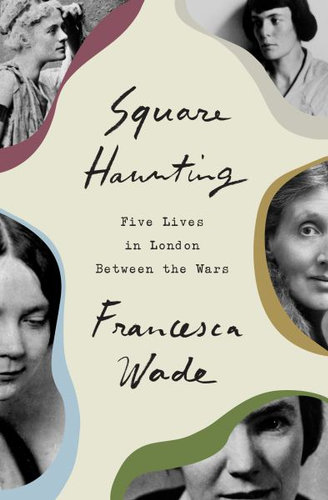 Square Haunting: Five Lives in London between the wars by Francesca Wade
Square Haunting: Five Lives in London between the wars by Francesca Wade
Francesca Wade’s Square Haunting: Five women, freedom and London between the wars (Faber, BUY) is an absorbing, elegantly written group biography. Modernist poet H.D. (Hilda Doolittle), classical scholar Jane Harrison, detective novelist Dorothy L. Sayers, historian Eileen Power, and writer Virginia Woolf all lived at different crucial periods in Mecklenburgh Square, near the British Museum. Here, these women thrived on financial independence and intellectual and emotional freedom. Half a century of women’s history is unobtrusively told in these brief, shrewd, and sympathetic biographies, in which the shaping forces of time and place are subtly rendered. From Mecklenburgh Square to Wenceslas Square: Richard Fidler’s engaging history The Golden Maze: A biography of Prague (ABC Books, BUY) is especially moving in its final pages, in which the author, no longer just a chronicler, joins a crowd in the Square to honour past freedom fighters and share present-day hopes and fears.
Kieran Pender
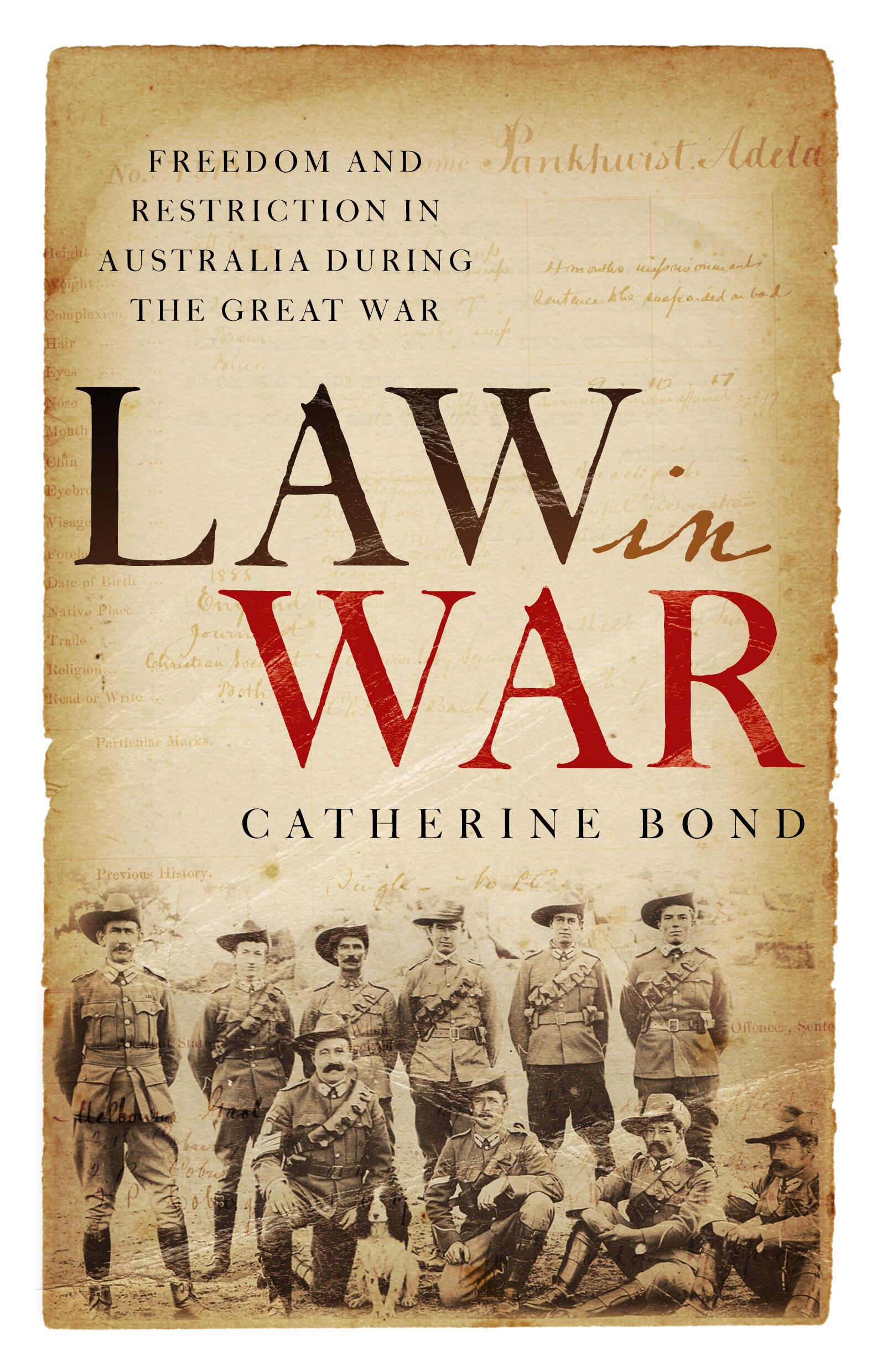 Law in War: Freedom and restriction in Australia during the Great War by Catherine Bond
Law in War: Freedom and restriction in Australia during the Great War by Catherine Bond
In a year of turbulence, reference to history can be instructive. In the early stages of the pandemic, Law in War: Freedom and restriction in Australia during the Great War by Catherine Bond (NewSouth, BUY) provided insightful lessons from another period of upheaval in Australia history. If we don’t learn from the past, we are bound to repeat it. Unfortunately, history often repeats for whistleblowers, those courageous individuals who speak up about wrongdoing. Whistleblowers have played a vital role during Covid-19. Yet they often suffer negative personal and professional consequences. Crisis of Conscience: Whistleblowing in an age of fraud by Tom Mueller (Atlantic, BUY) is a tour de force of book-length reporting on our collective failure to protect and empower whistleblowers. Finally, on a more uplifting note, Sarah G. Phillips’s When There Was No Aid: War and peace in Somaliland (Cornell, BUY) sheds light on an unlikely success story in the Horn of Africa.
Brenda Walker
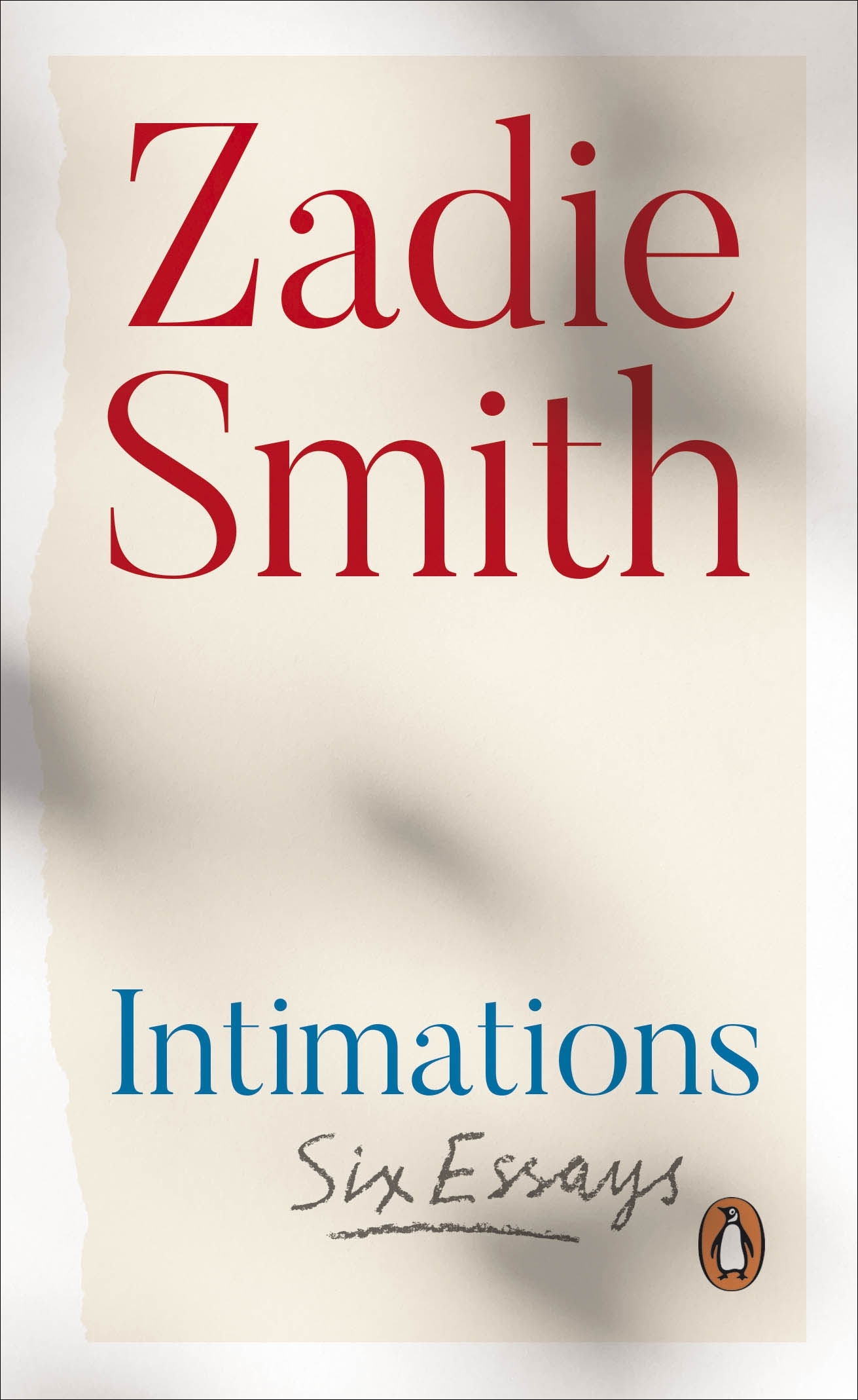 Intimations: Six essays by Zadie Smith
Intimations: Six essays by Zadie Smith
In the foreword to her personal essays Intimations (Penguin, BUY), Zadie Smith defines her form as a kind of ‘Talking to yourself … And writing means being overheard.’ My choices for 2020 are the works of writers we seem to overhear with all the powerful attentiveness of a secret listener. Smith writes with the immediate focus of a New York resident during the Covid-19 pandemic. Sufferings and divisions are gradually revealed by the ordinary events of her life. Rebecca Solnit’s Recollections of My Non-Existence (Granta, BUY) is an extended memoir of her writing life, in which she consciously constructs herself in much the same way as she writes, recommending: ‘making a self who can make the work you are meant to make’. Alex Miller’s Max (Allen & Unwin, BUY) is a magnificent reprise of the life of Miller’s friend the European refugee Max Blatt, silenced by experiences of loss and totalitarianism, but articulate in his intellectual guidance.
Peter Rose
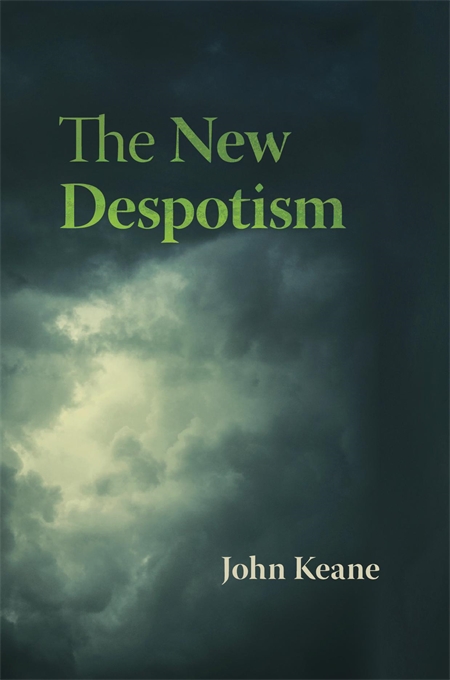 The New Despotism by John Keane
The New Despotism by John Keane
John Keane’s short book The New Despotism (Harvard, BUY) – drily filleting the new threats to liberal democracy – is essential, worrying reading. Patrice Gueniffey, not long after his magisterial biography of the young Napoleon Bonaparte, gives us an illuminating study of Napoleon and de Gaulle (Harvard, BUY), showing why the French are drawn time and again to ‘great men’ (and the odd slip of a saint). The heady, lordly prose reminds me of Carlyle – or superior fiction. Apropos of which, during lockdown I went back to Marcel Proust, in the Kilmartin– Enright edition from the Everyman Library (Random House). The boundless efflorescence of Proust’s sensibility and intelligence – not to mention his humour, sometimes overlooked – induce the usual awe. Finally, I recommend Clive James’s posthumous gift of a book, The Fire of Joy: Roughly eighty poems to get by heart and say aloud (Picador, BUY): some of the sweetest poems in the language accompanied by James’s lucid, loving notes – the ideal gift for adolescents who savour language.
David McCooey
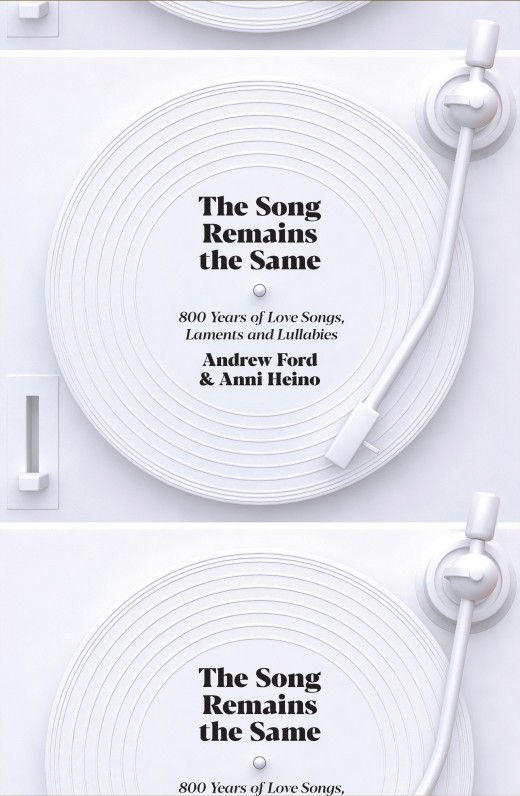 The Song Remains the Same: 800 years of love songs, laments and lullabies by Andrew Ford and Anni Heino
The Song Remains the Same: 800 years of love songs, laments and lullabies by Andrew Ford and Anni Heino
As the world rushes to catastrophe, the federal government chose this pandemic year to abandon (or attack) the arts and universities. Despite the times, resilient local poetry publishers gave us superb collections by Jordie Albiston, Aidan Coleman, Jill Jones, and many others. Felicity Plunkett’s A Kinder Sea (BUY) was a necessary rejoinder in a year of unkindness, illustrating Plunkett’s ability to write poetry that is both deeply intelligent and profoundly moving. Andrew Ford and Anni Heino gave us The Song Remains the Same: 800 years of love songs, laments and lullabies (La Trobe University Press, BUY), one of the best books on song I’ve ever read. The White Dress (Natasha Lehrer’s translation of La robe blanche, published by Les Fugitives, BUY) brought Nathalie Léger’s triptych of works about women, art, and power to an astonishing close. Lastly, Jenny Offill’s Weather (BUY) was the perfect novel for these end times.
Sarah Walker
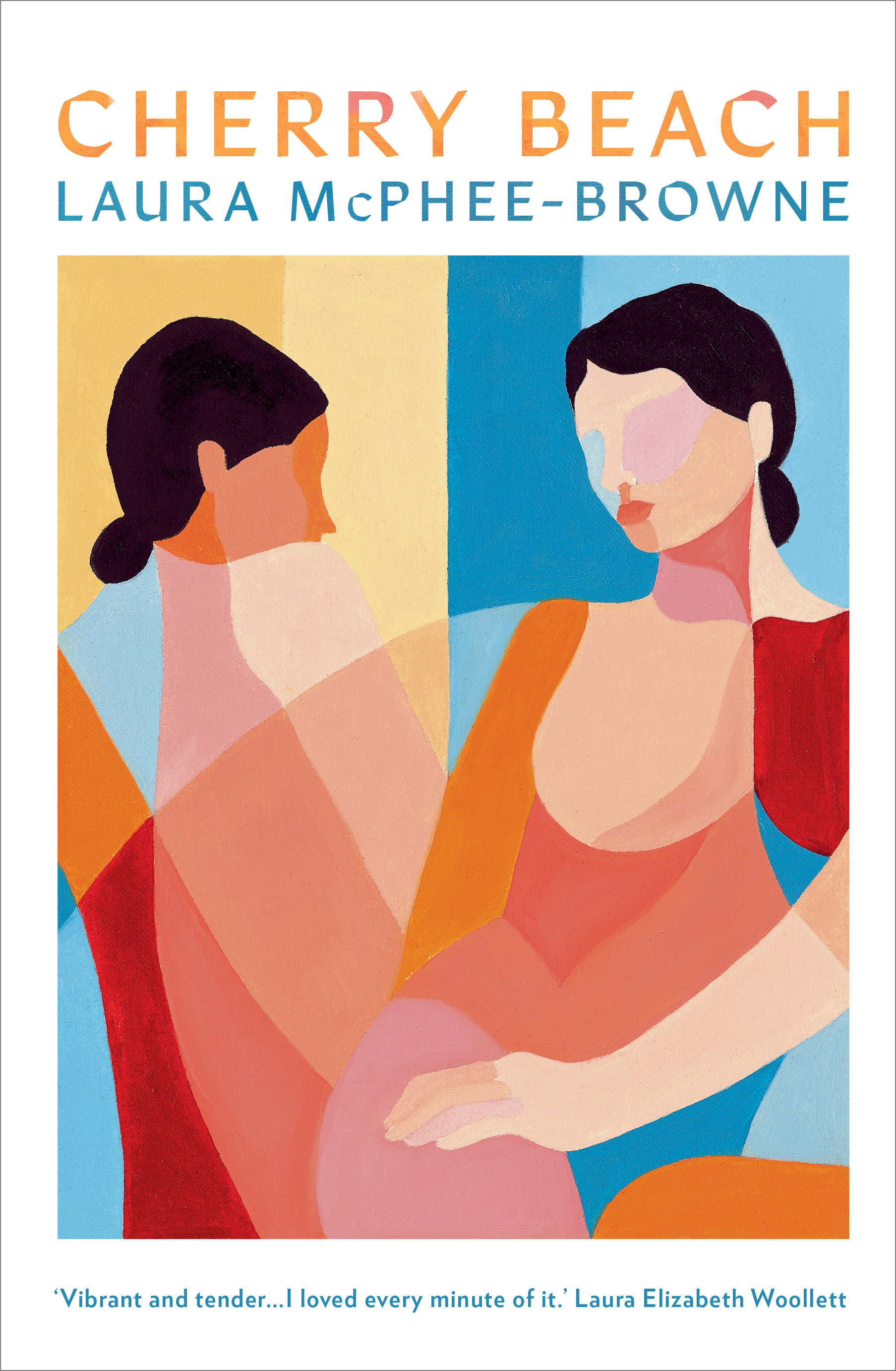 Cherry Beach by Laura McPhee-Browne
Cherry Beach by Laura McPhee-Browne
In a year when time has felt unusually heavy, I have loved books that made me stop noticing page numbers, books into which I fell face-first and emerged dripping with sticky emotional residue. Carmen Maria Machado’s blistering In the Dream House (BUY), an account of an abusive lesbian relationship, swept me away on a flood of crepuscular dread. Its formal play and bite-sized chapters form a rich flotsam: memoir, theory, queer bravery. When I finished it, I exhaled hard. It felt as though I hadn’t breathed for hundreds of pages. Laura McPhee-Browne’s Cherry Beach (Text, BUY) similarly pulled me into a house vibrating with the rumblings of things going wrong. I floated along with its worried, lonely narrator, in whom I recognised the thick longing that characterised my early twenties. The dreamy, slightly dissociative quality of the writing felt right for this year: hovering above a life that is slipping between our fingers.
Tony Hughes-d’Aeth
I found myself totally absorbed by Susanna Clarke’s novel Piranesi (BUY). Brilliantly conceived and executed, it is a masterclass in contemporary unreliable narration. Another slow-burning, eerie tour de force was Richard Flanagan’s The Living Sea of Waking Dreams (Knopf, BUY). The ecological catastrophes of this moment are folded through the banal origami of a family dealing with their dying mother. In short fiction, my favourite work was Elizabeth Tan’s Smart Ovens for Lonely People (BUY), which I think is already destined to be a classic. Its blend of Vonnegut surrealism and Carveresque suburbia gives each story a tiny wobble of ontological anxiety. The poetry book that spoke most directly to me in 2020 was Ellen van Neerven’s Throat (BUY). Wickedly sharp, the quiet poems draw you closer and deliver their sting at intimate quarters, and the louder ones grab you by … the throat.


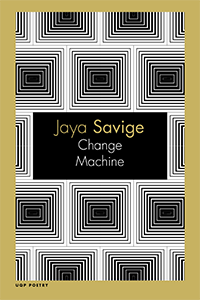
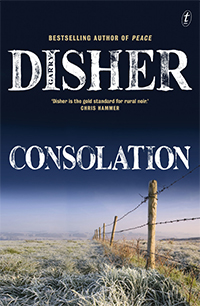
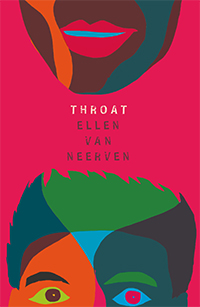

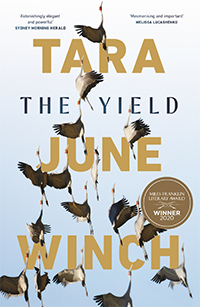


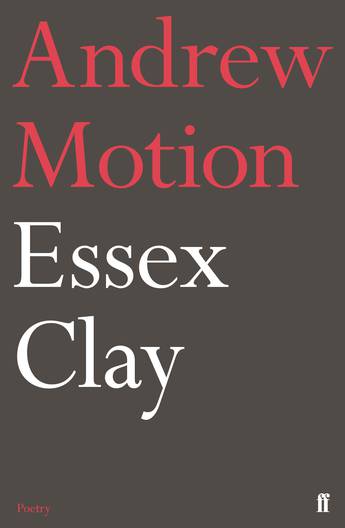
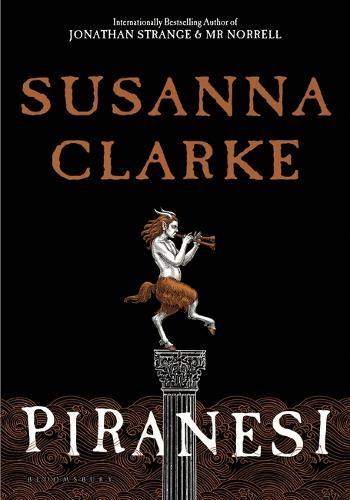



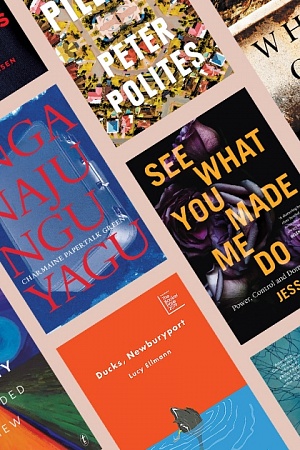
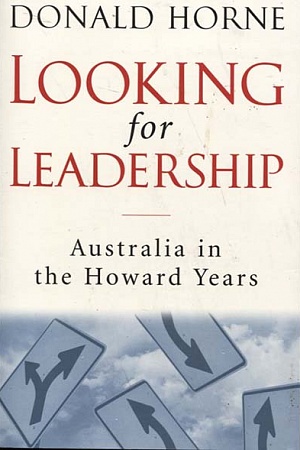
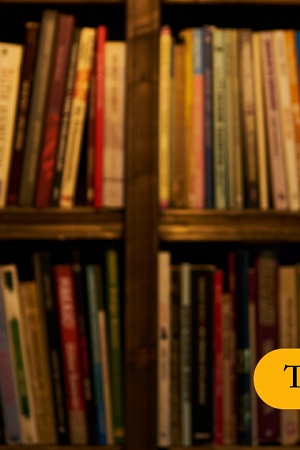





Comment (1)
Leave a comment
If you are an ABR subscriber, you will need to sign in to post a comment.
If you have forgotten your sign in details, or if you receive an error message when trying to submit your comment, please email your comment (and the name of the article to which it relates) to ABR Comments. We will review your comment and, subject to approval, we will post it under your name.
Please note that all comments must be approved by ABR and comply with our Terms & Conditions.